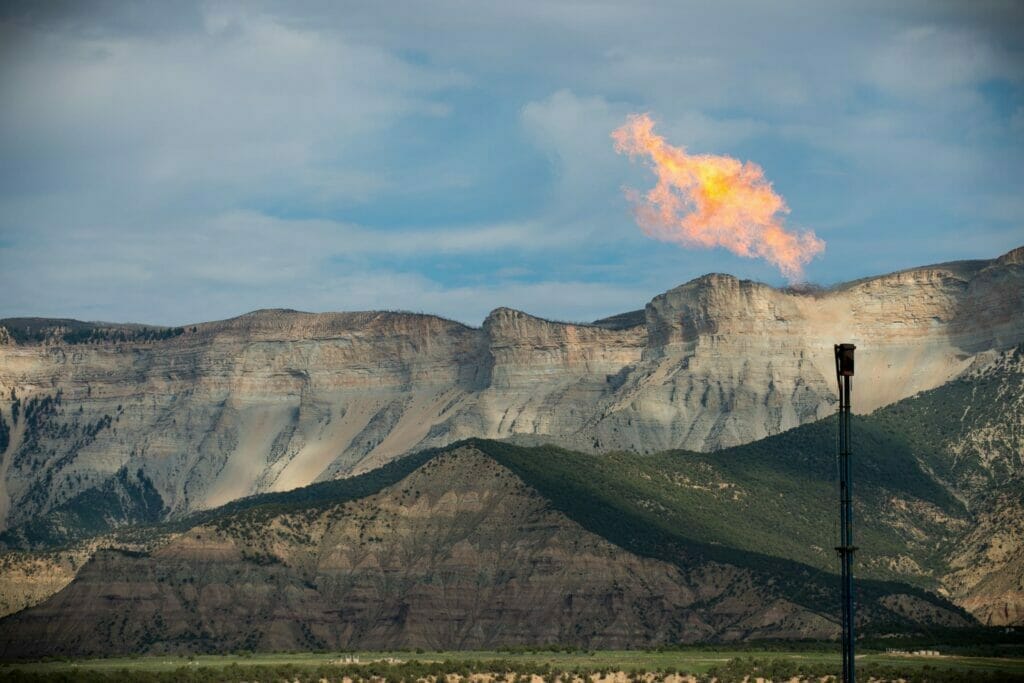America’s public lands are meant for multiple uses: fishing, hunting, hiking, camping, general outdoor recreation, and of course, industry—where it makes sense. But for too long, oil and gas leasing and drilling on public lands throughout the nation have enjoyed priority status. It is past time to grant all uses equal footing — and there might be some progress on this effort in Congress.
The House Committee on Natural Resources recently voted to include several provisions to modernize federal policies for oil and gas leasing in its reconciliation package. It’s long overdue and time to bring balance back to public lands.
Members of Congress need to know how important this issue is to all public lands users.
Under the current system, anonymous speculators have been able to nominate millions of acres of public lands for oil and gas leasing without regard for the potential to actually produce energy resources. This needlessly burdens land managers, does not benefit American taxpayers and creates unnecessary land management conflicts with fish, wildlife, outdoor recreation and other multiple-use activities.
We’ve seen this play out on the ground in Montana in the North Fork of the Flathead, in Wyoming in the Wyoming Range and in New Mexico in the Valle Vidal. In these remarkable places, speculators nominated oil and gas leases and federal agencies were compelled by antiquated laws to sell these leases, often at fire-sale prices. Outcry from hunters, anglers and local communities ensued. Eventually, Congress had to take action to protect each of these places with legislation that enjoyed bipartisan support. Wouldn’t it be easier to simply avoid these situations in the future by modernizing leasing laws? Trout Unlimited thinks so.

The House Natural Resources Committee’s reconciliation proposal would do this in three key ways:
- Ending non-competitive leasing
- Curtailing speculative leasing
- Increasing bond requirements
Ending non-competitive leasing: In the federal leasing process, lands are offered to oil and gas companies, who bid on them during a competitive auction. Lands that do not receive a bid are offered later at rock-bottom prices, tying them up with layers of bureaucratic red tape. This spurs speculation, and in places like Montana’s Tendoy Mountains, it has generated controversy where several non-competitive leases have been packaged into a single “unit” where development has been proposed smack dab in the middle of popular hunting grounds and native cutthroat trout habitat in the headwaters of the famed Beaverhead River (read more).
Curtailing speculative leasing: The reconciliation package includes measures that would create disincentives for those who nominate frivolous leases over hundreds of thousands of acres of public lands. It would do this in three ways: requiring a fee when nominating leases; increasing the minimum bid; and then an annual fee for “non-producing leases.” The proposed lease nomination fee and increased minimum bid has bipartisan support in the Senate where Senators Grassley (R-IA) and Rosen D-NV) introduced legislation, the Fair Returns for Public Lands Act, that includes these provisions. More needs to be done, however, and Congress also needs to take up the End Speculative Leasing Act of 2021, bicameral legislation introduced by Senator Catherine Cortez Masto (D-NV) and Representative Lee Susie (D-NV) (read TU’s statement on the bill). While not included in the reconciliation proposal, the End Speculative Leasing Act should be a priority for Congress to advance this year.
Increasing bond requirements. All public lands users, including the public and industry, have a responsibility to leave the land better than they found it. Sufficient bonding is an insurance policy for the public to know that regardless of the financial status of an operator, our public lands and resources will be reclaimed after oil and gas procurement, even if the well is orphaned. A recent Government Accountability Office report (Bureau of Land Management Should Address Risks from Insufficient Bonds to Reclaim Wells) found that “bonds held by BLM have not provided sufficient financial assurance to prevent orphaned oil and gas wells”, and that there have been 89 new orphan wells between 2017-2019. When wells are orphaned, taxpayers are left holding the bag to clean up these wells. The Natural Resources reconciliation proposal would get a handle on this problem and protect taxpayers by increasing bond amounts to $150,000 for a single well or $500,000 for all operations in a single state.
To ensure interim and final reclamation plans are adequate to restore fish and wildlife habitat, and that bond amounts are enough to cover habitat remediation, two separate proposals in Congress, Senator Bennet’s Oil and Gas Bonding Reform and Orphaned Well Remediation Act (read TU’s statement) and Representative Lowenthal’s Bonding Reform and Taxpayer Protection Act, would fully address this problem by both increasing bond amounts and improving reclamation requirements. These provisions to increase reclamation requirements are not eligible to be included in the reconciliation proposal so it is vital that Congress passes them separately.
Responsible energy development and conservation need not be mutually exclusive, but it takes the right policies to ensure this tenuous balance is maintained moving forward. The proposals that moved through the Natural Resources Committee are an important step toward a public lands leasing system that is fair for taxpayers and helps protect fish and wildlife habitat. We applaud the Committee for moving these proposals forward and urge the Senate to also take swift action. At the same time, Congress must take up additional legislation to end speculative leasing and improve reclamation requirements.



